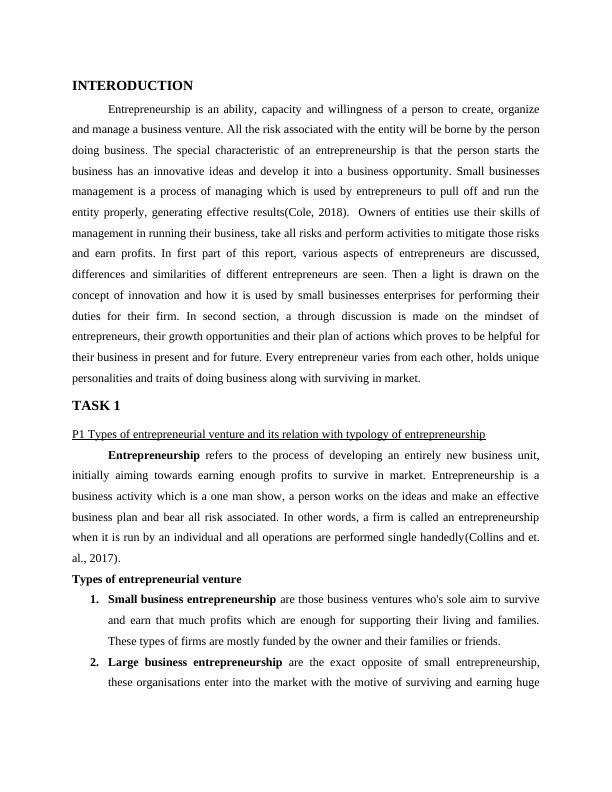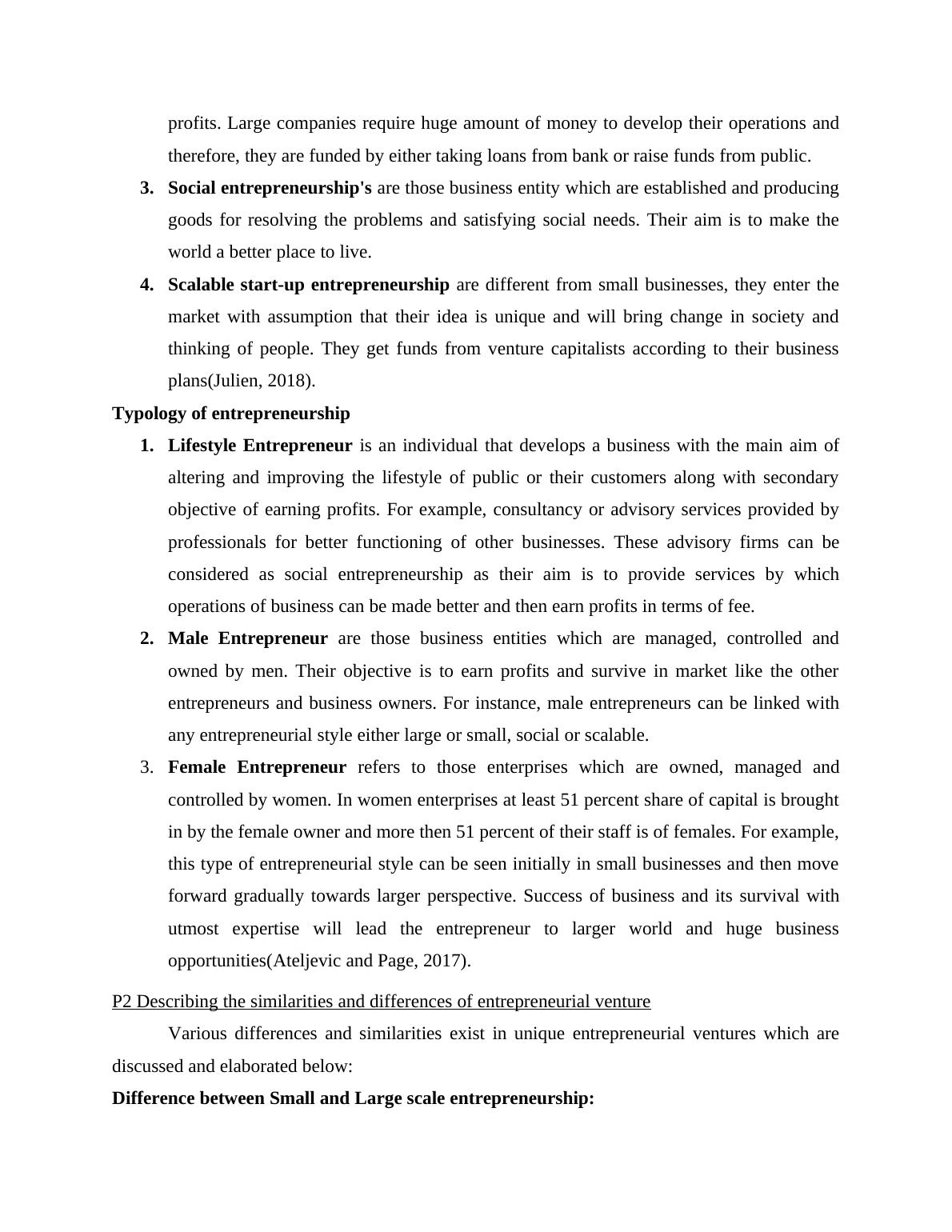Entrepreneurship and Small Business Management
14 Pages4364 Words68 Views
Added on 2023-01-18
About This Document
This document discusses the types of entrepreneurial ventures and their relation with typology of entrepreneurship. It also describes the similarities and differences between different entrepreneurial ventures. The document further explores the impact of small, medium, and large businesses on the economy and highlights the importance of small business and start-ups in relation to the growth of the economy. Additionally, it discusses the characteristics, traits, and skills of entrepreneurs.
Entrepreneurship and Small Business Management
Added on 2023-01-18
ShareRelated Documents
End of preview
Want to access all the pages? Upload your documents or become a member.
The Impact of Small and Micro Enterprises on Economy
|13
|3626
|220
Entrepreneurship and Small Business Management
|15
|4707
|41
Entrepreneurship & Small Business Management Typologies: Doc
|17
|4740
|471
Assignment on Relationship Between Small Business and Entrepreneurship
|13
|4216
|107
Entrepreneurship and Small Business Management
|22
|8146
|39
Entrepreneurship and Small Business Management Assignment - Solution
|16
|4666
|143




